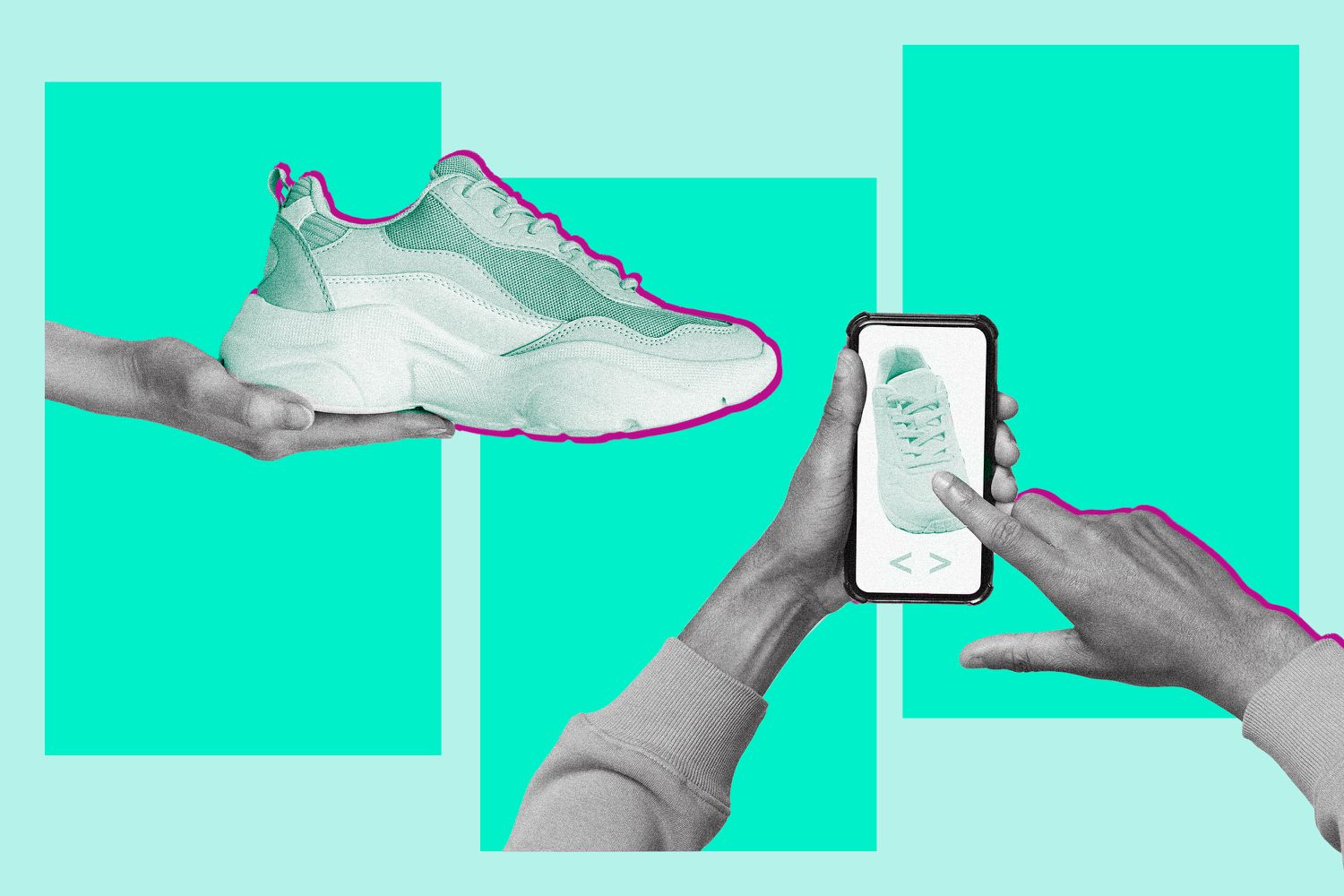What to Expect During a Custom Running Shoe Fitting

We independently evaluate all of our recommendations. If you click on links we provide, we may receive compensation.
I have one toenail that likes to fall off almost anytime I go for a long run. It sits right next to my big toe, jutting out just far enough that, especially when I do a good deal of downhill running, it rubs against the front of my shoe and gets busted up. But after training seriously in ballet while growing up and spending most of my teen years in pointe shoes, I’m very used to missing toenails, so it never felt like a problem I needed to fix. Until a solution fell into my lap.
Enter: Hilma, a custom running shoe brand that Shape asked me to test out prior to the Shape Sneaker Awards. The shoes are designed specifically for women, and each size comes in three distinct silhouettes in order to fit your feet more precisely. “Different brands of jeans have different fit models, and those tend to work differently on different body types depending on the ratio of your hips and your waist and your thighs and your leg length,” says Brooke Torres, Hilma’s CEO and founder. She was inspired to start the brand (which launched in 2022) when she realized we didn’t have those same kinds of options when it came to our feet.
“There are over 20 billion pairs of shoes manufactured globally every year, but they're really only designed to fit about 33 percent of people super well,” says Maeve Wang, co-founder and CEO of Iambic, which creates AI-tailored precision-fit sneakers. “For about 40 percent of people, they fit tolerably well. But for 27 percent, we don't fall within very limited standard sizing, and we're in discomfort.” Wang’s own feet are a shape that’s fairly common among women — with a wide forefoot and narrow heel — but don’t fit well in most shoes. People with toes that angle inwards even though their knuckles are wide or those with very high insteps also tend to struggle, adds Raza Hassan, co-founder and chief technology officer at Iambic.
To offer people a better fit, some shoe companies today are giving consumers new ways to customize their sneaker design. In the past, Wang says, custom shoes cost around $3,000 to $10,000 and took up to 12 months to create. Today’s technology has made it possible to offer more personalized fits at more feasible price points (and much shorter timelines) for the average person.
Hilma helps customers find the right fit and size for their feet via an online quiz that asks questions like which running shoes brands typically feel best on your feet, whether you usually find shoes too narrow or too wide, if your heel slips, the shape of your toes and arch, even your age and body size. Based on my answers, the site recommended I get a size eight in “The Two.” This fit features a roomier, rectangular toe box, with a narrow midfoot and heel.
While that sounded good to me in theory, I was a bit apprehensive when my pair arrived. Taking them out of the box, the shoe felt a bit heavy, and the sole seemed pretty stiff, with less of a curved rocker shape than the running shoes I usually like. But once I slipped my feet inside and headed out for a run, it felt like my metatarsals just… relaxed. I don’t usually go for wide shoes because they’re usually too big on me, but this design gave me space just where my foot needed it while still being snug enough around my instep and heel to stay put as I ran.
I started reaching for my Hilmas on more and more of my runs, including long runs up to 17 miles. After a month, I realized that despite the hilly routes I’d been choosing, my pesky toenail had stayed perfectly intact. Most running shoes feel good enough on my fairly average feet, but I hadn’t realized that one customized to fit their exact shape could feel even better.
Of course, there’s a wide range of what “custom fit” can mean. In a way, Hilma is just offering three women-specific styles with an online quiz that helps you find the best one for you. This keeps the cost ($159) right in line with standard running shoes, so Hilma is one of the more accessible options if you want to experiment with scaled custom-fitting shoes.
Iambic, on the other hand, creates an AI-tailored last (the foot-shaped mold that shoes are built around) for each shoe based on smartphone camera scans of your feet, a detailed comfort questionnaire, and — once you become a repeat customer — the wear patterns on your last pair of Iambic shoes. That personalized design will set you back $550, which is substantially more of an investment than even most carbon-fiber plate “super shoes” for running, which typically cost around $250 or $300. (Although Iambic currently only makes a lifestyle sneaker, they’re hoping to move into performance footwear down the line.)




